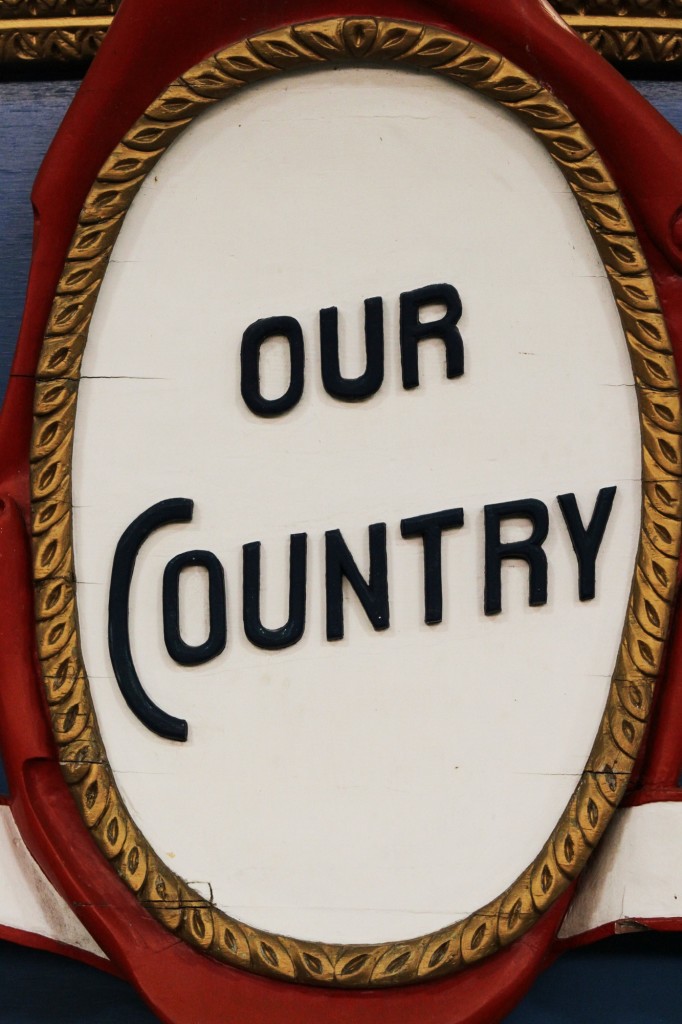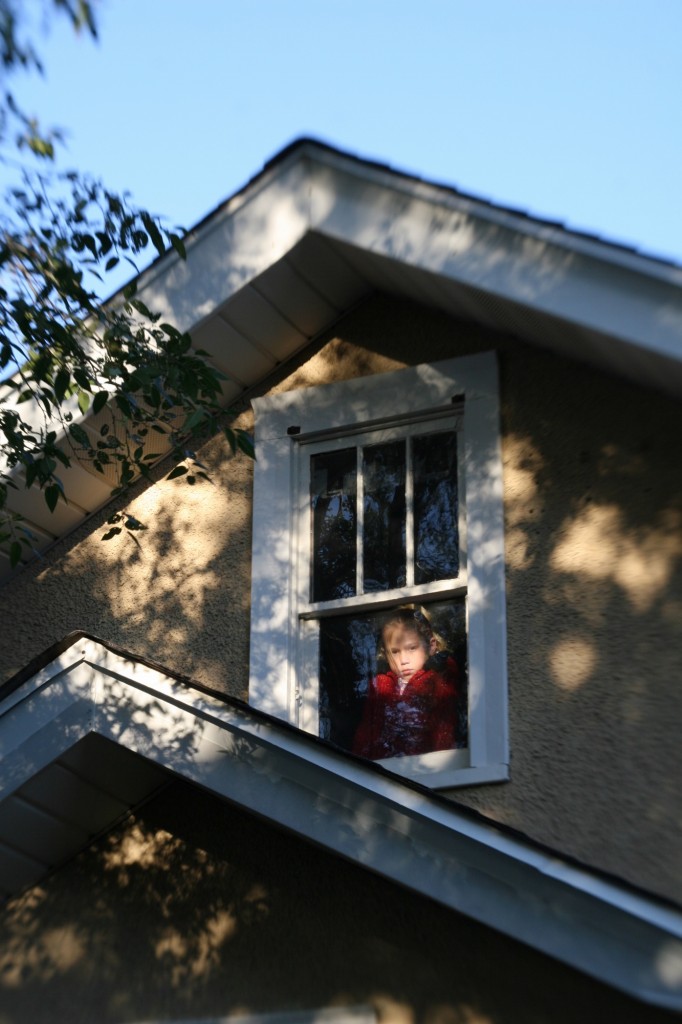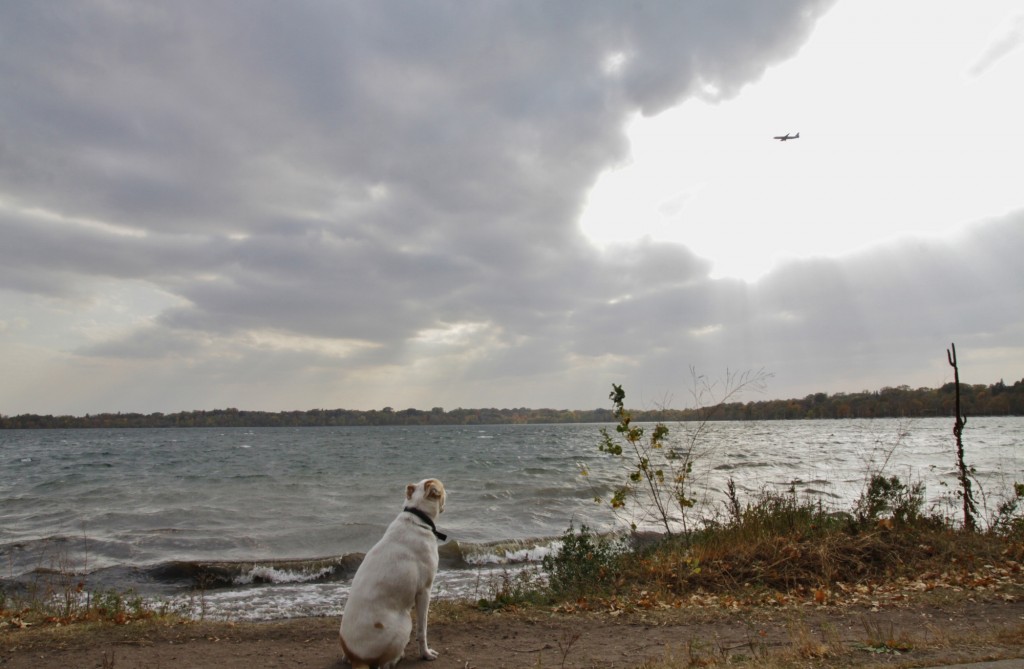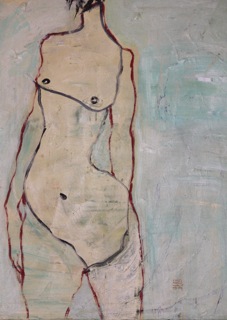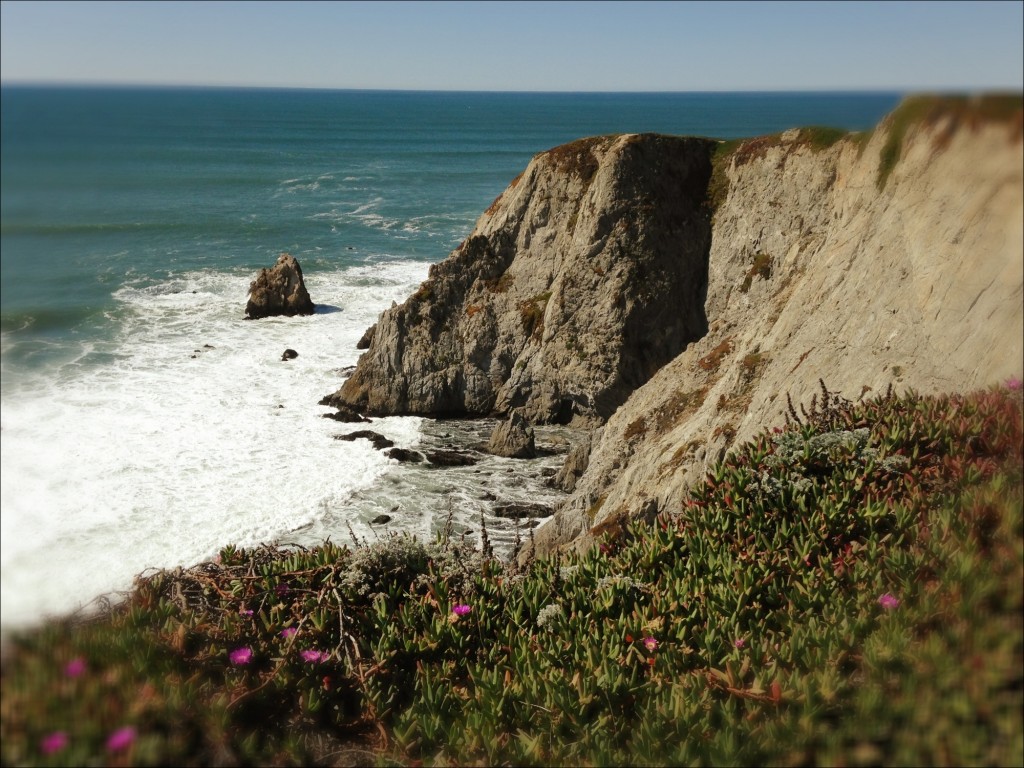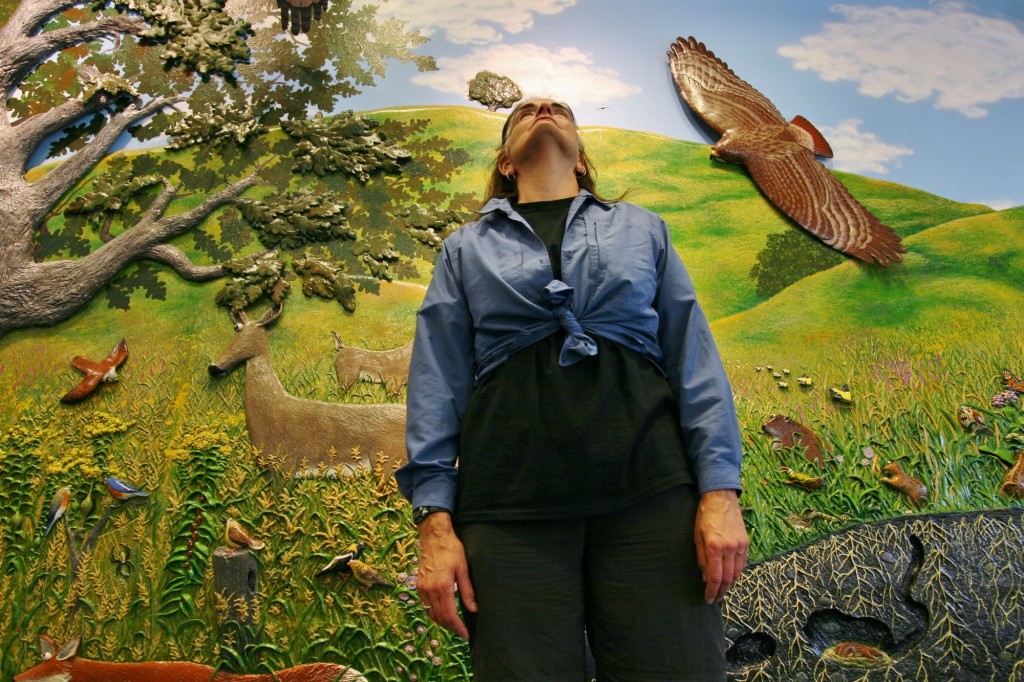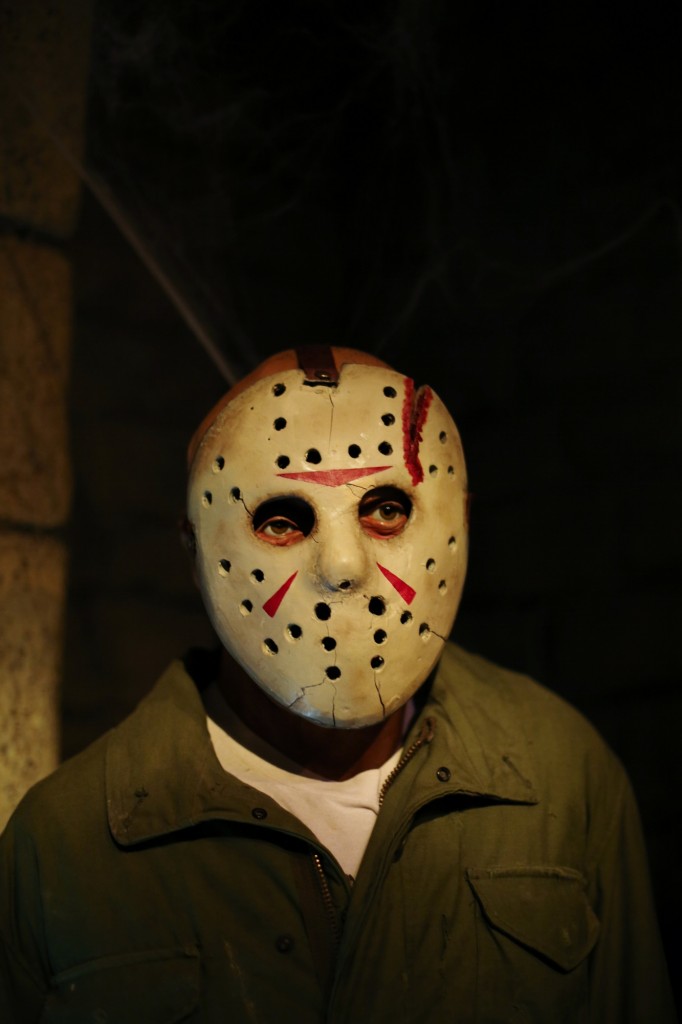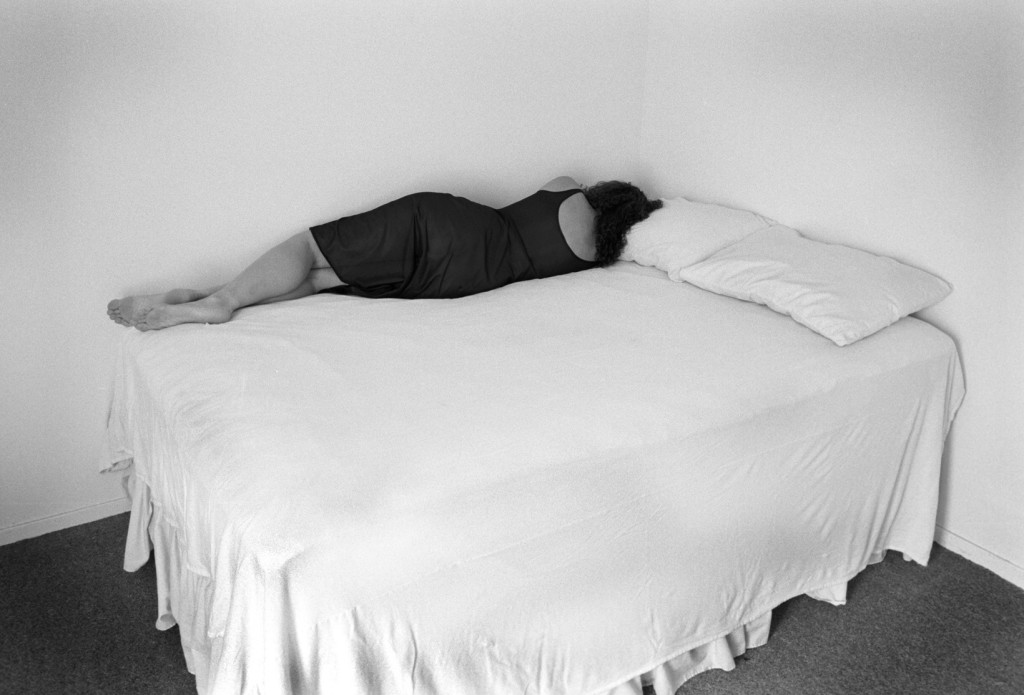
By Jennifer James
It happens everywhere, in all kinds of situations; I’ll walk up to someone and smell That Smell. The last time it happened to me was the first day of Advent when all the families with young children gathered in our church parish hall to construct Advent wreaths. The smell wasn’t the first thing I noticed. In fact, when I first arrived with my husband and three children, the room smelled of old wood, fresh coffee, and evergreen boughs: genuine magic in the air. The Christmas tree stood in the corner, waiting for its bright lights and colorful ornaments. There were already some jars of peanut butter and Campbell’s soup under the tree for the food pantry. For me, it was the best of the Christmas season.
Then one of my favorite peeps at church, this young, amazing mom, with two little kids, came up and gave me a hug. I smelled the smell. You know it too, and it’s not armpit odor, or old urine, or greasy hair. It’s the smell of human skin trying to metabolize, to slough off, the stench of alcohol. You also probably know that this smell is not emitted (generally speaking) by some emotionally stable person who spent the previous evening nursing a tepid glass of merlot. Nope. This is the smell of poison, the result of one person consuming too much alcohol for his or her body to take. I know about this smell. I used to smell that way, too.
The first time I noticed my own skin generating alcoholic stench was one sunny December morning when I was teaching preschool. My husband’s company Christmas party had taken place the night before and there was lots of wine and beer. Lots of wine for me. Then, lots of chit chat. Chit-chat with my table mates about abortion. My Catholic tablemates. Whoops. Any grace I’d come to the table with had gone down with the third or fourth glass of wine. The next morning, I woke up nauseated and ashamed. This was a significant occasion for me, this one morning.
It would be very nice if I could tell you that I knew I’d been drinking too much, that I needed to stop or cut down. But no. I realized that I needed to do a much better job of hiding my relationship with alcohol. Otherwise, the jig would be up. And I was nowhere near ready to surrender my favorite thing, so no more drinking excessively in public.
There is a book called Drinking: A Love Story by Caroline Knapp. Not surprisingly, she likens her relationship with alcohol to one with a lover. I like the analogy because, like it or not, most of us have loved someone who or something that is bad for us. Sometimes the loved one is a parent, a lover, a boss, a friend. Sometimes a job or food. But no matter how disastrous the relationship is, there’s always a moment, an episode, an element of deep, searing satisfaction to the whole mess. In an abusive relationship, it might be the part when the abuser begs for forgiveness, swears that his victim is kind and generous beyond belief, that he might cease to exist without her. Shit, that’s heady stuff: who among us doesn’t want to hear that? If only the truth in those promises lasted more than an instant. And eventually, alcohol does something cruel to its lovers: it tries to kill us.
For years, I hated alcohol. My mother was an alcoholic. She was one of the kindest, bravest, most loving people I’ve known, but her relationship with alcohol sucked away a lot of that. She was quietly depressed her whole adult life, so far as I could see. She was never violent or cruel, not short tempered or really angry. She was just irreparably sad and the alcohol made it very hard to hide that. I didn’t want that for myself.
Because I was afraid of becoming as sad as my mom, I didn’t use alcohol in many of the glorious ways that so many miserable adolescents do. I didn’t use it to fit in or to grease social skids. I didn’t use it to feel more confident or brave. Nope. I went through high school as a bona fide misfit. I was pudgy (and this is before the so-called obesity epidemic hit America) and as a child, had been raised in a series of small, international communities. It was no big deal for me to have one classmate who spoke three words of English and another who was fluent in three languages. So when my family returned to the U.S. for good when I was fifteen, I had no idea how to navigate The American High School. When most of my peers were exploring chemical solutions to adolescent angst, I didn’t touch the stuff. In retrospect, this may have been a tactical error: I desperately needed some social lubrication.
Probably, these years of social pariahism helped make my introduction to alcohol so dramatic. Alcoholism is tricky business from a scientific point of view. The current thinking seems to be that some alcoholics are alcoholic from their first sip of alcohol, that their first drink was like a first kiss or something, that the compulsion to drink came with the first rush. Then, there are others who drink themselves into addiction: the folks who start by drinking “a couple“ of drinks a night, and gradually work into “a few” drinks a night, and then somehow start using it to make it through the day as some people use Diet Dr. Pepper or Starbucks. Some people are lucky enough to get some nifty little psychological tic (sometimes not until their thirties or forties) and find that deep breathing and Zoloft are not nearly as effective as a well-timed glass (or tumbler or stadium cup) of Chardonnay. I’ve known people with all these backgrounds. In a way, I am a person with all these backgrounds.
I had a proclivity to anxiety and panic attacks from the start (my psychological tic), started consuming a few drinks about mid-way through college, with little effect. I was waiting for a magical transformation to transpire from the elixir smuggled into dorm fridges via grungy backpacks, and when it didn’t happen, I lost interest. That was probably the point in my drinking experience when I could have stopped. I was well ensconced in the life of a social misfit in college, just as I had been in high school, and I could have muddled through the social challenges unaided by alcohol if I’d been truly aware of how my genetics and experience made me such a likely candidate for alcoholism.
That was the time when I could have stopped. That doesn’t mean I would have. And I remember the night I started drinking with purpose, with an understanding that an alchemy occurred when enough beer was consumed. Some friends from high school had gotten together at someone’s house, the parents conveniently out of town, and rum, beer, god-knows-what beverages running freely. I got drunk. Like, crawling up the stairs, stumbling into things, drunk. And while the hangover hurt like childbirth, I had found some magic in that night: for just a little bit of time, I felt normal. I felt good, even. Pretty, funny, accomplished. Ha.
Alcohol was my first love. It was like a secret passport, giving me license to be a person I never knew I could be. Add beer and I wasn’t afraid of anything. Because I started this chapter of my life in college, I could look to the right and to the left, and always find someone who was drunker than I was. It never occurred to me that I might have a drinking problem: I was having a good time! It wasn’t like I was a diligent student before I discovered alcohol, and drinking didn’t make my schoolwork much worse than it had been previously.
Despite the hangovers and ill-advised hook-ups, I survived college intact. I collected a degree and a boyfriend. The boyfriend, Ed, was an anomaly. Ed was handsome, kind, wise, and funny. He was nice to me. He drank beer right along with me, but I didn’t have to be drunk to be with him. God bless him, he married me. And besides alcohol, Ed was the only thing I’d ever found in my life that made me feel whole.
Shortly after college, my husband and I were struggling professionally and financially, and I was having trouble finding work. I spent a lot of lonely days in our crappy little apartment feeling sorry for myself and watching whatever VHS tapes were available for loan at the local library (my Blockbuster habit was breaking us). I noticed that a beer (or three) around four in the afternoon helped to make the evening more pleasant. And again, alcohol became the only way I knew to feel okay again.
But even alcohol and a kind husband weren’t enough to fix everything that was broken in me. I was a hot mess. By my mid-twenties, I was overcome with weird, irrational fears, and some whiney-flavored depression. I was working at the preschool with young children, whom I loved. I didn’t always love the adults who came with them, however, and frankly, young children in groups bigger than—well, two, being generous—makes me a little panicky. So, I would come home from work at about four and drink a bottle of wine. It seemed like a good idea at the time.
In the meantime, I was having gruesome nightmares involving faceless vampire-like beings and dead people who inexplicably opened their eyes. I was convinced that I would die very soon. It would be cancer or AIDS that did me in, and I was too petrified to even contemplate going to a doctor to confirm or disprove my insanity. As a result, I would require my poor husband to examine my lumps and bumps and to tell me I wasn’t dying, really. You can imagine that Ed had his hands full. But somehow he managed not to drink a bottle of wine every night. It was a mystery.
Eventually, after one particularly grueling night of drinking and weeping (I had just watched a chick flick about a young woman who died of cancer: surely, I was next), I called a counselor. God bless Eleanor, she talked to me and my inner child, and we all talked about my mom and I actually got better, kind of. Every good alcoholic knows to lie about their alcohol intake unless they’re itching for an intervention, so I never told Eleanor how much I drank. I started taking Prozac and it helped my brain even out some. I wasn’t so worried about dying all the time, and got down to the business of living. I still had wine as an ally, but I was trying to control my drinking now. Only weekends and such.
For me, it wasn’t long before the weekends seeped into Wednesdays and Mondays and who could really blame me for a glass of wine on Tuesday night? A couple of years passed. I left teaching and tried another couple of gigs: travel agent, legal secretary. I settled in as a receptionist at my local veterinary clinic, feeling sorry for myself for my lack of ambition.
By the time I was miserable enough to quit drinking, I was not missing days of work, only occasionally driving drunk, and not closing down the bars. I’d never had a drink in the morning. I’d never cheated on my husband. My life was simply, quietly, a mess. Because alcohol had become the most important part of my life. I loved my husband but only wanted to spend the day with him if the day included alcohol. I loved my newborn nephew but resented the idea of caring for him over a weekend’s time because I knew I’d have to stay relatively sober for the duration.
So I quit. After much consternation and many false starts, some meetings in church basements and coffee shops were involved. Reluctantly, I acknowledged that I couldn’t stop drinking on my own. I went to meetings because I was more afraid not to. I didn’t find them as comforting as many people do, but at least I was in the company of other people who understood what it was like to love a drink more than anything or anyone else in the world. Eighteen years later, I still don’t drink and still go to meetings.
In my experience (and only mine), the twelve-step programs are kind of like church: you can find a fundamentalist church if that’s what floats your boat. If you’re more of a universalist who doesn’t dig creeds or rituals, you can probably find a worship service to accommodate those preferences. As alcoholics go, I’m more of a universalist. I couldn’t have maintained my sobriety or sanity without good therapy and a lifelong relationship with antidepressants. I don’t like it when people make a list of rules that I have to follow if I want to live. That doesn’t feel like hope to me—more like a threat. Still, those famous twelve guidelines and the people who brought them to me were a part of my salvation because they promoted humility, honesty, and kindness. There aren’t many places you can find those attributes in this life.
I stopped drinking because one morning I understood that I couldn’t have a full life if I kept drinking. One of my friends from work had come to visit me the night before. She was a much more advanced drunk than I was. At least that’s what I told myself. We sat around and drank and drank until we could barely stand. We felt sorry for ourselves together. We watched soap operas and god knows what else. When my husband came home from work that night, I am quite sure that he felt that sickness in his chest that all people who live with alcoholics feel when they open the door and find a stranger inhabiting the body of their loved one. My friend and I slurred our greetings to him, giddy with our chemical wisdom and angst, and then my friend got in her car and drove home. Yep. Just like that.
And when I woke up that next morning, it was with That Smell emanating from my pores. That same smell I get when I hug a person in the parish hall at church, when a bank representative leans in to show me where to sign. I know that the person across from me is suffering, not just from processing toxins through their pores but from trading away little bits of their soul, one glass at a time. There are a lot of us out there. You can tell us by the way our eyes light up when someone pours a drink. The way we joke about needing a drink. All the time.
All of us stop drinking at some point. It’s just that for some people, that point is death. When people “die” from alcoholism, it’s often not from cirrhosis or an automobile accident. It can be a fall. Or a fight. It can be a quiet, chemical whisper telling you, “one more pill won’t hurt.” After alcoholism seduces its victims with easy laughter and imaginary confidence, it sets out to spread darkness, like a nasty cancer. You’ll know the darkness when you choose a glass of wine over your child’s cry or a blurred drive home over your personal, legal, and moral safety.
So when I smell That Smell on someone else, I want to hug them. I hope they’ll drink a lot of water and get a nap later in the day. I want them to know that they are not alone, that other people have woken with that same crust on their souls.
For me, kindness made all the difference. I had to understand that I was suffering from a physical, moral, and spiritual disease, and that I had to find a way to live as it was, not as I wished it was. And damn it, life can be a mess sometimes. It can be magical, uncomfortable, frightening, tender, tedious, and exhilarating—sometimes simultaneously—and none of it is in your control. Still, there is a certain freedom in accepting this chaos and in walking through the messiness with your spirit intact.
Weirdly, I found myself enjoying being a sober person. I found that it was okay to be wickedly uncomfortable at social settings, that I didn’t have to punctuate every event, good, bad, or boring, with a drink. Sometimes I wonder what the hell I’m doing with my life. But I don’t wake up poisoned anymore, with That Smell on my skin, or in my heart, for that matter. And that is a reason to celebrate every new morning, whatever the day ahead might hold.
•••
JENNIFER JAMES lives with her husband and three children in rural Virginia. After graduating from William and Mary in 1989, Jennifer moved to Gloucester County, where she found work as a teacher’s assistant and veterinary receptionist until 2000, when her first child was born. After an approximate decade of diapers and interrupted sleep patterns, Jennifer started writing with purpose in 2010 and has been at it since. This is her second essay for Full Grown People. A good story is her favorite thing.

 Follow
Follow
